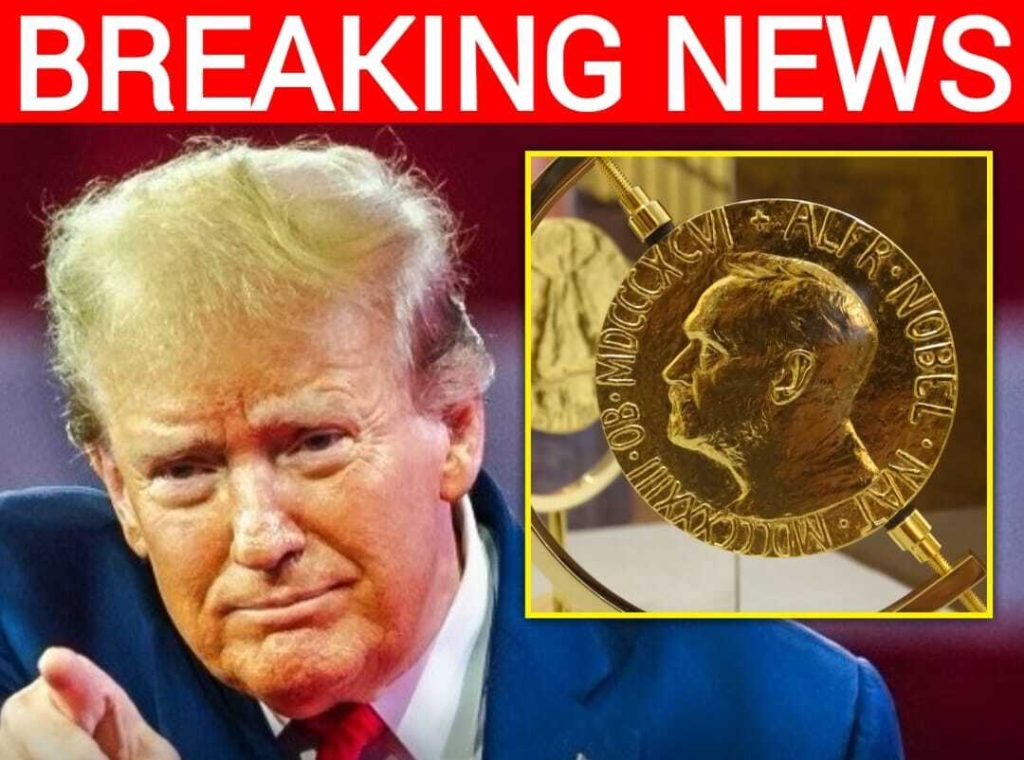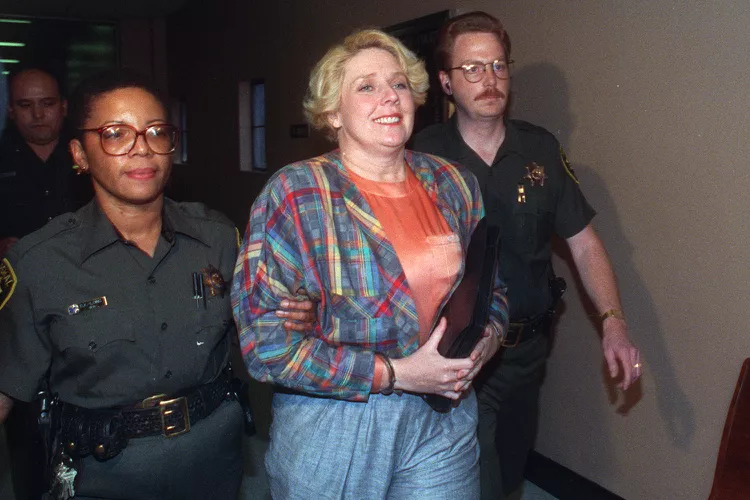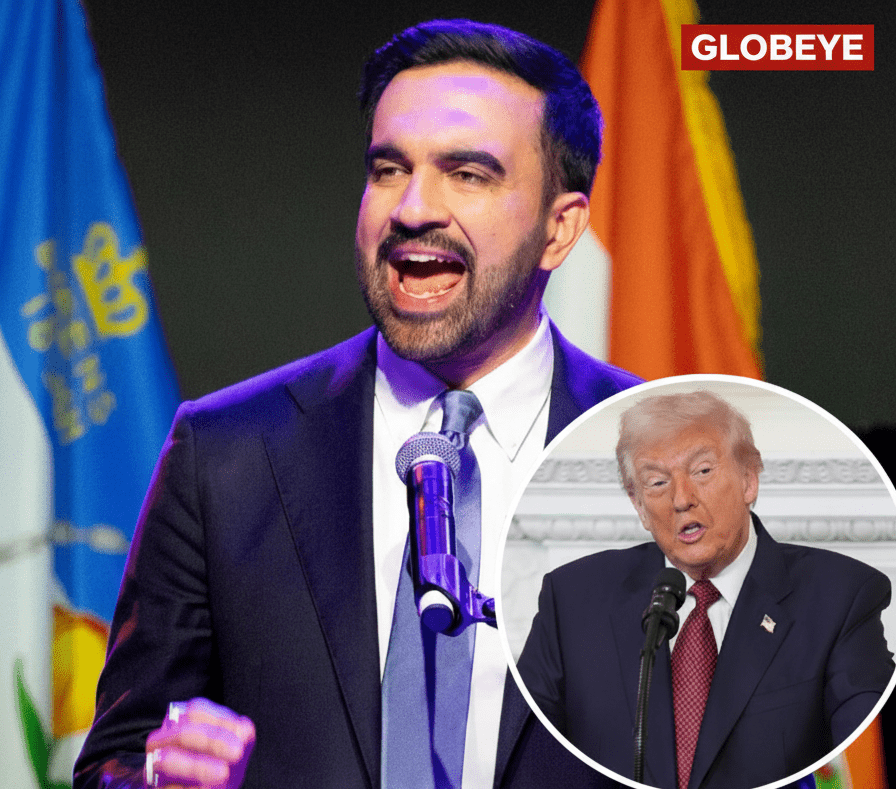As the Nobel Committee Prepares Its 2025 Peace Prize Announcement, Pressure Mounts Worldwide to Award President Trump After the First-Phase Gaza Ceasefire Success
As the world waits for the Nobel Peace Prize announcement, pressure is surging like never before — and this year, much of it centers on one name: Donald J. Trump. Just days after a first-phase ceasefire deal was reached in the Gaza conflict on October 8, 2025, a growing chorus of voices across social media, political circles, and international forums are calling on the Nobel Committee to recognize what many describe as a major diplomatic breakthrough under the former president’s renewed leadership.
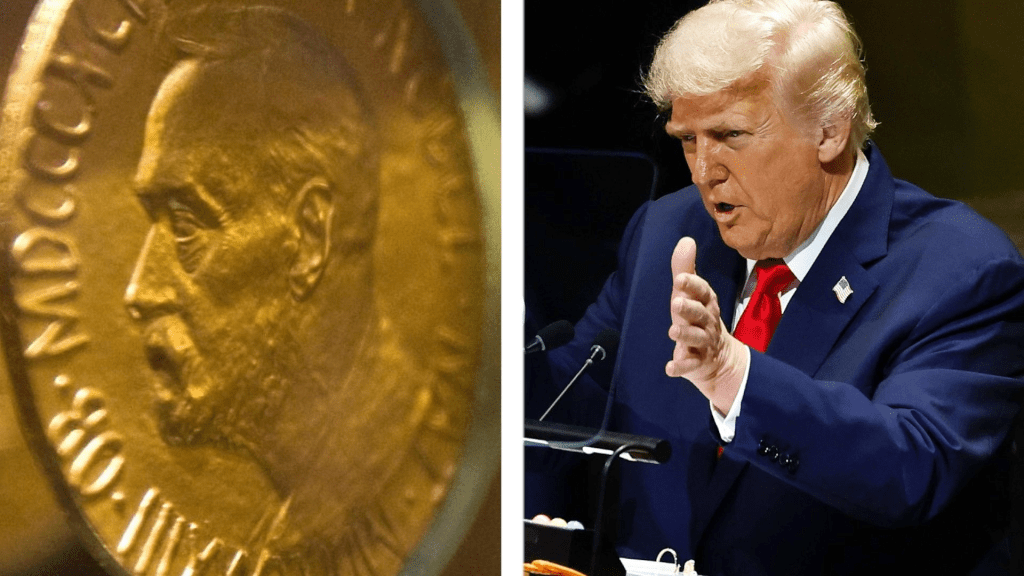
The conversation began picking up speed after the White House confirmed that Trump personally oversaw part of the communications between mediators from the United States, Qatar, and Egypt that helped bring about a partial ceasefire agreement between Israel and Hamas. The deal — hailed as a “first step toward long-term peace” — has reportedly paused airstrikes and rocket attacks in several key areas, allowing humanitarian aid to flow into Gaza for the first time in months. While experts caution that the agreement remains fragile, it represents the most significant de-escalation in the conflict this year.
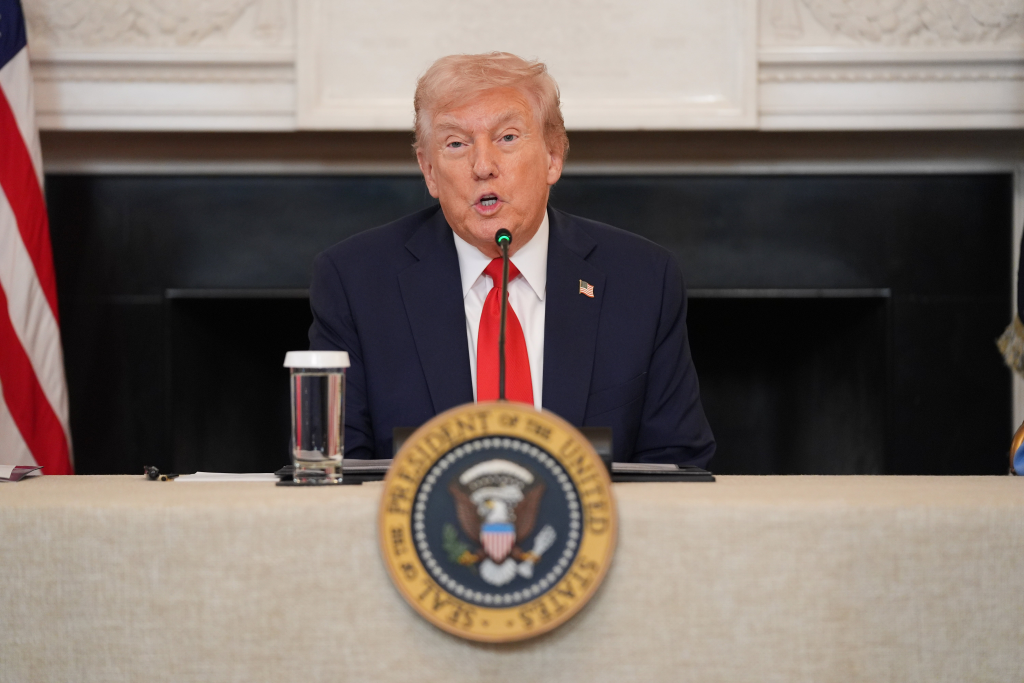
Supporters argue that this moment underscores Trump’s long-standing commitment to peace through strength — a philosophy that previously led to historic diplomatic accords in the Middle East, including the 2020 Abraham Accords, which normalized relations between Israel, the UAE, and Bahrain. Many now see the Gaza breakthrough as a continuation of that legacy. The call for Trump to receive the 2025 Nobel Peace Prize has gone viral, amplified by conservative commentators, political figures, and everyday citizens who believe that his leadership style and influence helped pave the way for the ceasefire.
The movement gained even more traction after a viral post featured side-by-side images of the Nobel medal and Trump raising his hand during a rally, captioned with a message claiming that the committee’s credibility “would stoop even lower” if it ignored his contribution. Within hours, the post garnered tens of thousands of shares and reactions, with comments ranging from enthusiastic support to sharp debate. “If Trump doesn’t win it now, the prize means nothing,” one user wrote, echoing a sentiment shared by countless supporters online.
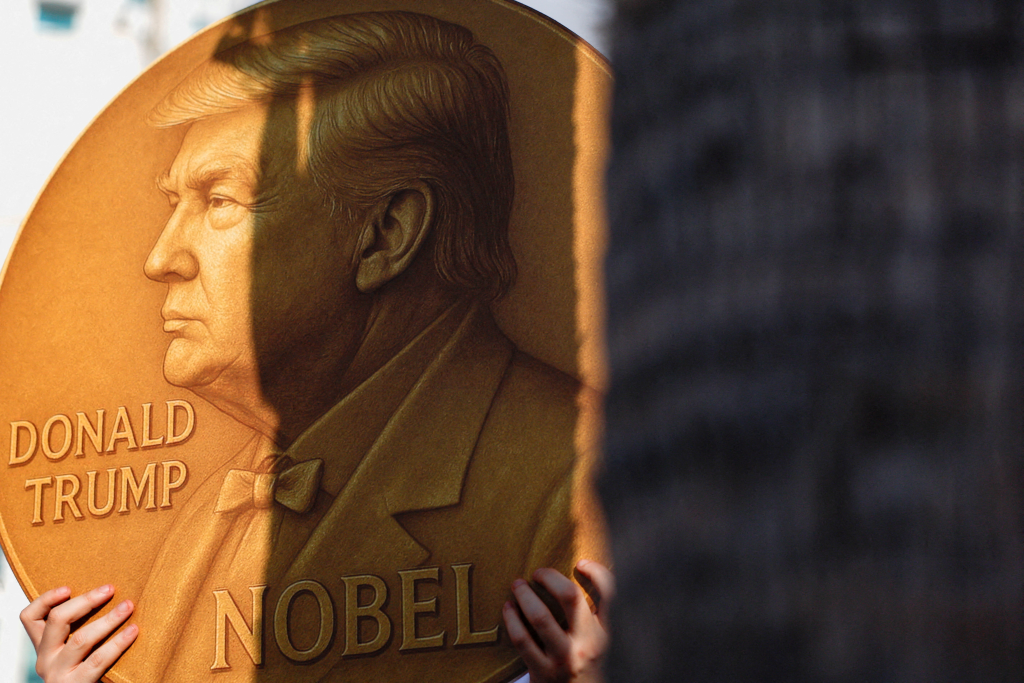
But behind the emotion lies a more complex reality. According to multiple reports from Reuters, BBC, and the Associated Press, the Nobel Peace Prize’s nomination process closed months ago, long before the recent Gaza deal was announced. Experts familiar with the committee’s procedures have cautioned that while Trump’s involvement in current negotiations is significant, it’s unlikely to directly influence this year’s prize decision. The Nobel Committee operates independently and rarely comments on active political developments, especially those involving major powers.
Still, the timing of this ceasefire — and the symbolism surrounding it — has added a dramatic edge to the global discussion. Many of Trump’s supporters see the moment as poetic: a man once mocked by global elites for his unorthodox diplomacy now being linked to one of the most meaningful peace efforts in recent years. Even political rivals have quietly acknowledged the deal’s impact, though some argue it’s premature to assign credit until the ceasefire holds longer than a few days.
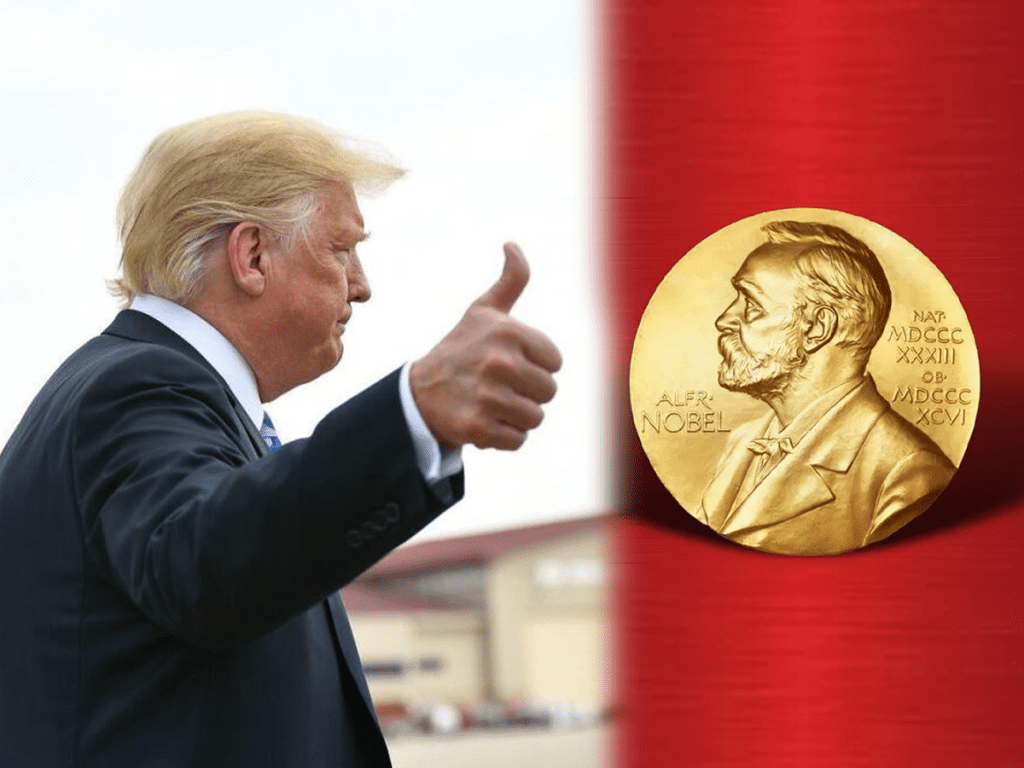
Regardless of whether the Nobel Committee takes notice this year, Trump’s backers see this as validation of his foreign policy approach — direct, transactional, and unapologetically American-first, yet surprisingly effective in breaking through decades of deadlock. It’s an approach that has often been dismissed by critics but continues to produce tangible outcomes in regions where traditional diplomacy has failed.
As the world awaits the October 10 announcement, the tension feels almost cinematic — a global guessing game with real political weight. For Trump’s supporters, the stakes go beyond the medal itself. They view the Nobel Peace Prize as a test of integrity for an institution that has long claimed to represent moral courage and fairness. “If Trump can help bring peace to Gaza and still be ignored,” one analyst remarked, “then the Nobel loses its meaning.”
Whatever the outcome, one thing is clear: the conversation around this year’s prize has already reshaped public perception of what global peace efforts look like in the modern era. Whether through official recognition or public sentiment, Donald Trump’s name has once again taken center stage on the world stage — as a figure both divisive and undeniable, and perhaps, in the eyes of millions, the peacemaker no one saw coming.
